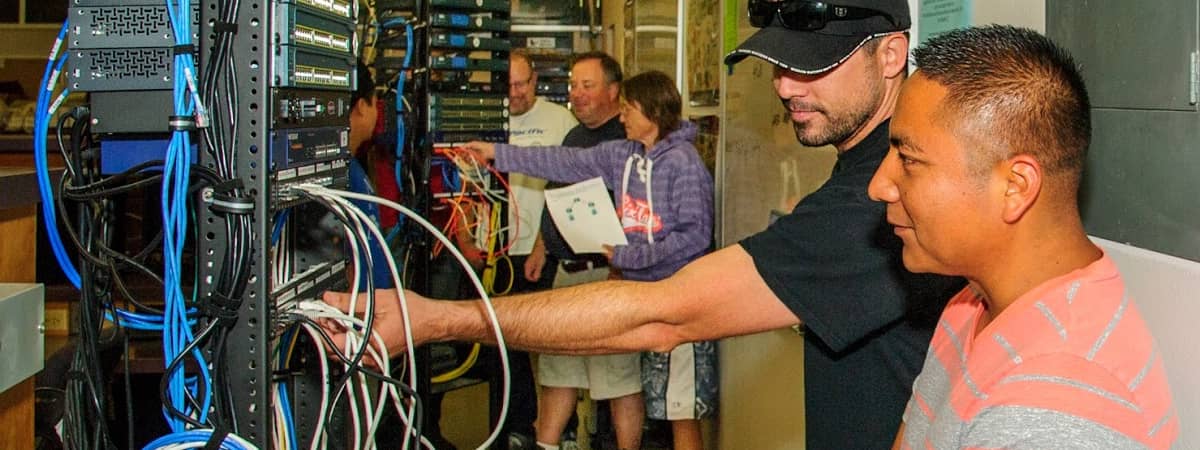Do you have a passion and aptitude for making things work? Are you interested in how technology helps individuals, businesses, and communities thrive? If so, you should consider a career in electronics technology.
Allan Hancock College’s computer networking and electronics technology (CNET) program is led by industry professionals who emphasize hands-on training using state-of-the-art laboratory instrumentation. Students will develop current technical competence, resourcefulness, and teamwork skills that help society to stay plugged in and powered on.
Whether students are looking to complete an A.S. degree, a certificate of completion, industry certifications, or simply update their job-related skills, the engineering technology program can help. Students can further tailor the programs to their individual interests and needs by selecting specialized courses.
Graduates of the engineering technology program are prepared for rewarding careers in such fields as mechatronics, computer maintenance, network administration, telecommunications, industrial control, and instrumentation and leave ready to meet and exceed industry standards of certification.
If you’re looking for a career that uses your hands and your head, a career-ready degree or certificate in electronics technology might be for you!
This program will help you to:
- use electronic equipment in electrical, digital and analog circuits
- use computer simulation and design software to conduct, analyze and interpret electrical, digital and analog circuits
- make calculations involving various electrical laws, formulas and principles for predicting circuit parameters using algebra and trigonometry required for electronics
- use research strategies to acquire information
- write technical laboratory reports with conclusions
- design, build and evaluate a piece of electronic equipment
Degrees and Certificates Offered
Each program has unique requirements. The order in which you take courses may affect your completion time. Visit the links below to view the program requirements and a general semester-by-semester course schedule.
ASSOCIATE IN SCIENCE- CNET: NETWORK MAINTENANCE AND DIGITAL TECHNOLOGIES
Certificate of Achievement- CNET: Network Maintenance and Digital Technologies
Associate in Science- CNET: Mechatronics
Certificate of Achievement- CNET: Mechatronics
Associate in Science- CNET: Electronics Technology
Certificate of Achievement- CNET: Electronic Training
Associate in Science- CNET: Electronic Engineering Technology
Certificate of Achievement- CNET: Digital Systems Technician
To view all available degrees and certificates visit the Allan Hancock College course catalog.
Programs you may also be interested in exploring:
- Computer Science
- Engineering
- Engineering Technology
- Machining and Manufacturing Technology
- Welding Technology
Contact Information
Administrative Assistant II
Alyssa Alvarez
805-922-6966 ext. 3335
Department Chair
Saad Sadig
805-922-6966 ext. 3488
ssadig@hancockcollege.edu
Dean, Academic Affairs
Thomas Lamica
805-922-6966 ext. 3261
thomas.lamica@hancockcollege.edu
LOCATION
Santa Maria Campus
Bldg. O, Room 101
805-922-6966 ext. 3335


